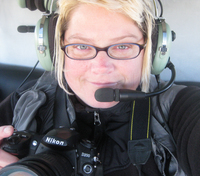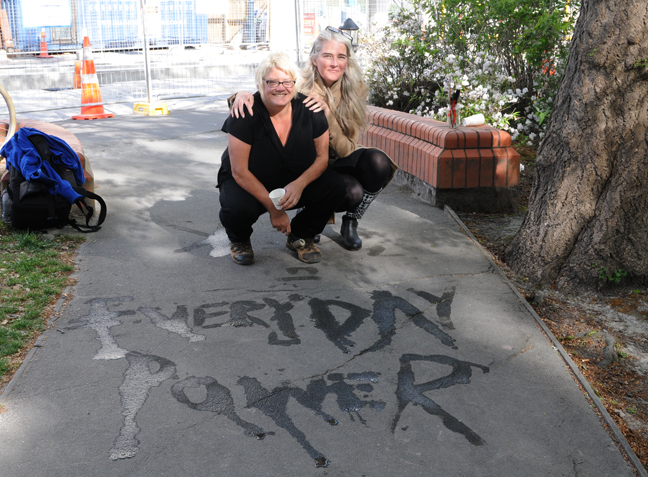
There is a pair of black rain boots neatly laid beside the Avon, as the river gently winds through the city, banked on either side by grass and here, yellow flowers.
No one is around.
The next day, I am back in this same spot, and there is a small sign that announces floating poetry.
Beside the Avon, this time, there is a note from Poetica, and this experimental project to find poetry in unexpected places. William Butler Yeats wrote a poem about the wild swans at Coole, and there are two lines, made of cork and painted white, floating beside the antique power wheel.
Three paper swans hang from the tree, and fly in the breeze.
The ink tells me to take a poem from the plastic: The first I see is by Kirsty Dunn:
“Amidst the shards of glass
& twisted steel
beside the fallen brick
& shattered concrete
we began to understand
that there is beauty in the broken
Strangers do not live here anymore.”
This speaks to me.
It is about Christchurch here, after the February 2011 earthquake, which killed 185 people and decimated 80 percent of downtown. I have gone through my own trials here following this dream, and in doing so, I have been embraced by support from friends - and even strangers - 12,000 miles away, buoying me up. I am using the replacement Nikon, from those who support me, and this idea of shining a light on everyday power after my camera died. I also expose myself out here all the time, sharing on this trip.
I grab the words.
I walk.
The black and white rain boots are laid out again, this time with a woman holding a mason jar of brushes.
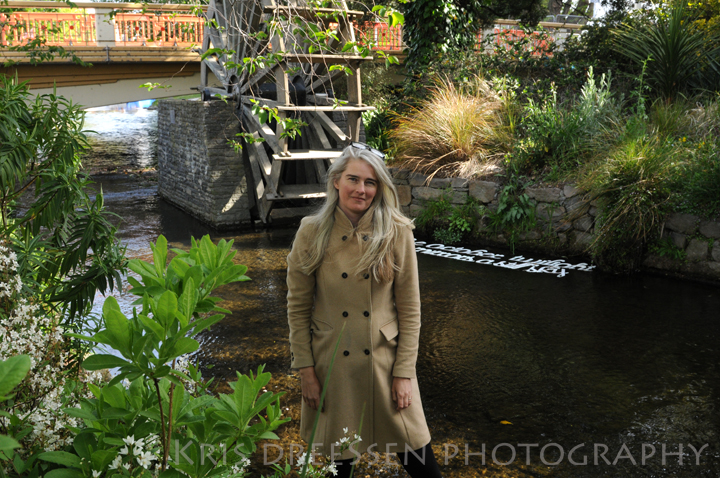
Elise van Bentem had been laying out the cork. Ah. Now, she is inviting people who stop to look and read to paint their own poetic word or poem with a brush and water on the pavement. It is impermanent, as she intended.
It is the fifth Poetica project in downtown. The first? A blackboard painted onto the wall of a ruined downtown building, with an invitation to write a poem, take photo and post it to a website. The most loved would be painted on the wall. Kirsty’s was chosen, she says.
Kirsty is behind me, sitting on a wall.
I tell her I chose a poem that spoke to me — the first one in fact — what was hers about. When she utters the first words I know it is hers.
Sometimes, the universe provides small nudges. Sometimes it is jumping up and down with its hand up in the air.
Kirsty has since become a collaborator with art projects, seen all over Christchurch as it rebuilds —container shopping malls, installations like the Dance-O-Mat and Poetica. They change constantly and represent something good out of the rubble, they say.
“I feel a lot more connected with the city than I did before,” says Kirsty. “People are embracing new ideas.”
After the quake, people came together. They care more about each other, and are thoughtful, says Kirsty and her friend, Sam White.
People are trying to breathe life into the dead spaces, which has ushered in a new spirit of art and do it yourself that wasn’t really there before.
“The earthquake made it easier to put your hand up and do it,” says Kirsty.
She did.
The travel books have got it wrong. I tell them so. They say Christchurch is boring because there is no downtown and businesses moved away. People stay away. I had to walk 15 minutes to find a pharmacy.
But they focus on the wrong thing. The earthquake makes this city fascinating. Every time I leave my hostel doors I discover something interesting — and vibrant. Teens dancing their hearts out on the Dance-O-Mat, a little dance floor amidst the empty lot. People conducting business in shipping containers. There is a spirit here.
As we talk a woman comes up and asks if she can record us. Sure.
I have no idea why. Why not.
Turns out Trudy Lane is part of a team of people who run Sound sky.org, an iPhone app that speaks to the city. Literally. Stand in locations and you hear the life that was buzzing there, before. Like us, now.
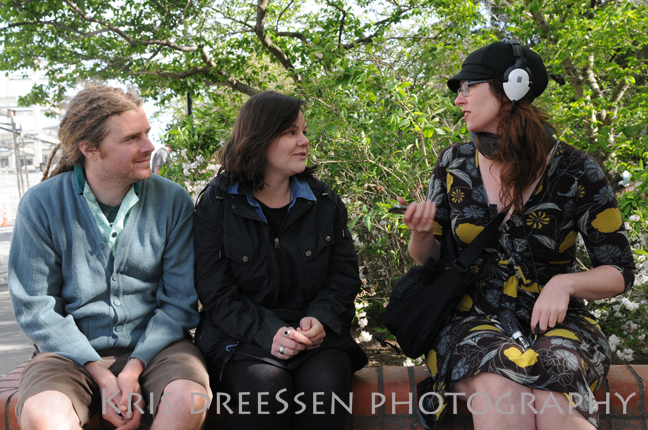
I am enlivened by the resilience I find here, and the ideas. Before I go, I announce I must add my impermanent thought to pavement.
We choose a roller brush, because she says “If you want rebellious …” and that sounds good.
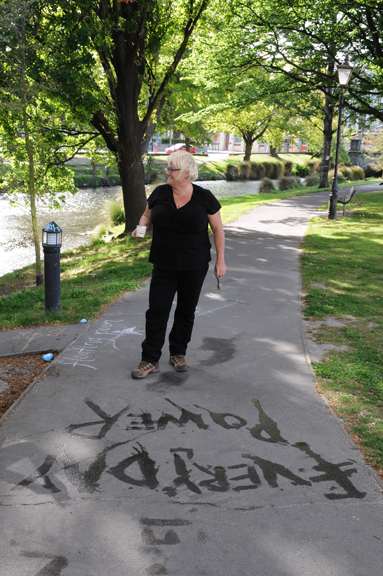
I keep thinking of a poem I wrote as a teen that echoes but in the end, I choose two words that encapsulate what I have found here and what I’m out here doing:
“Everyday Power.”
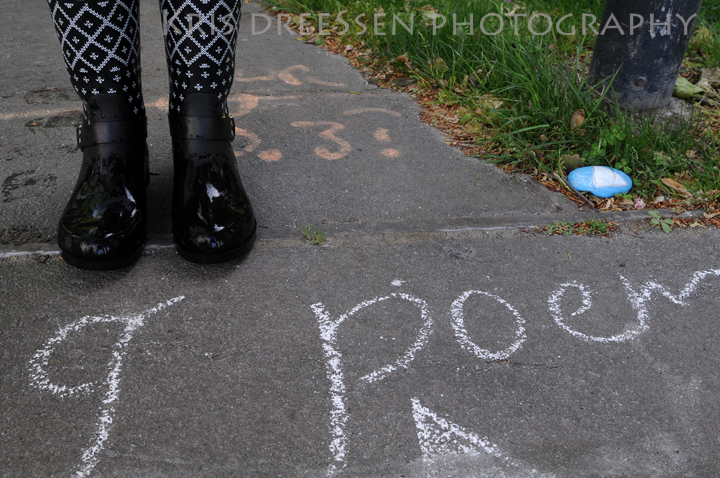
**
Kirsty’s website, now that she’s not a closet writer and has gone public.
